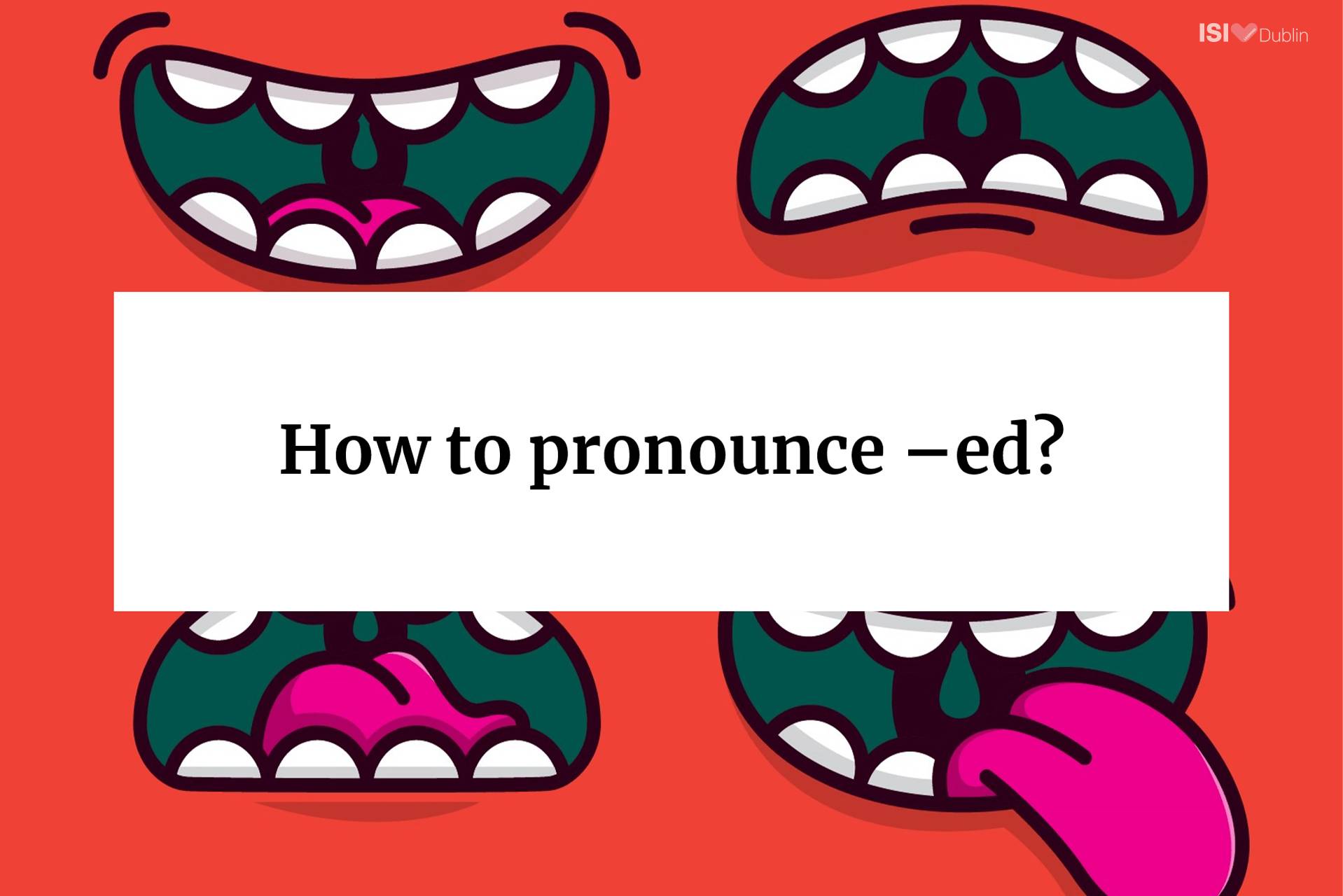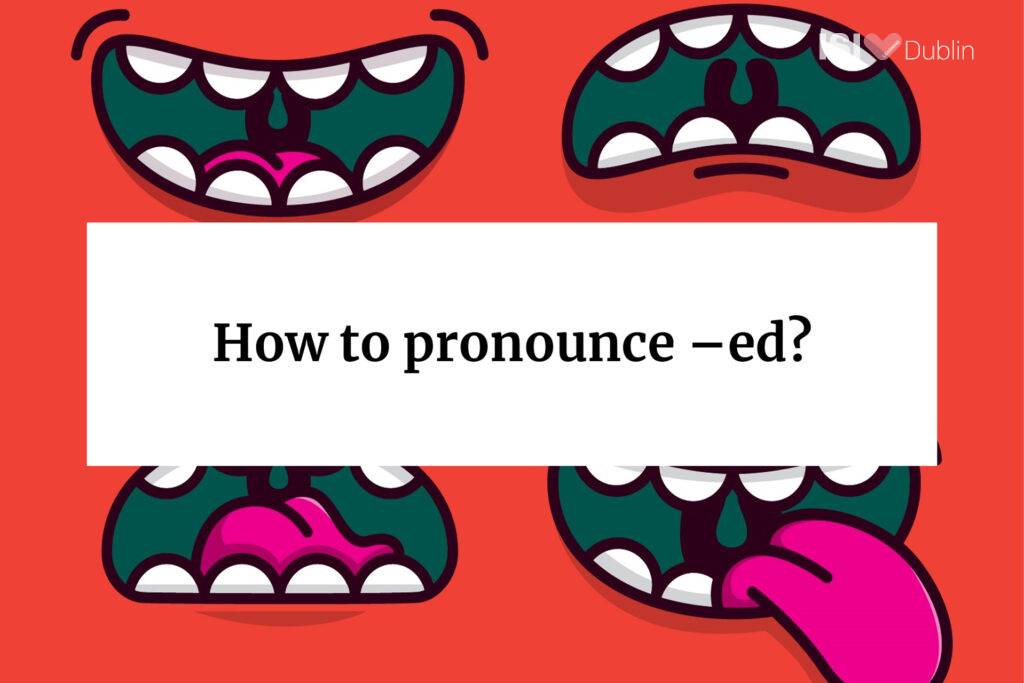With English examinations perpetually around the corner, whether it’s your end of term assessment or your in-house Trinity examination — or perhaps you’re even going for Cambridge FCE, CAE, CPE, or IELTS — it matters not, it is vital to know how you can prepare for these and how you will be assessed. When it comes to your speaking examination, one thing that you are assessed on is Pronunciation. An area of Pronunciation that is a prevalent problem for English language learners is the pronunciation of regular verbs which in their Past or Past Participle forms take on an “ed” ending. A lot of ESL students labour under the allusion that all “ed” endings in English are pronounced “id,” when this is simply not the case. In fact, of all the possible “ed” ending sounds (don’t be frightened, as you’ll see, there are only three), this is the one that we native speakers use the least!

Pronouncing “ed” Endings:
In English, “ed” endings may be pronounced in one of the following three ways:
![]()
RULE 1:
“ed” endings are pronounced “t” if the end of the word sounds like:
K, S, Ch, Sh, F, P, Th
For example: I helped my mother bake a cake yesterday.
For example: I jumped up and down with joy
For example: I bumped my head.
In these examples, the end of the words sounds like P. So, the “ed” ending is pronounced “t”.
RULE 2:
“ed” endings are pronounced “id” if the end of the word sounds like:
T or D
For example: I wanted my mother to bake a cake yesterday.
For example: I rented a nice apartment.
For example: I applauded loudly.
For example: I wounded my leg.
In these examples, the end of the words sounds like T or D. So, the “ed” ending is pronounced “id”.
RULE 3:
“ed” endings are pronounced “d” for all other ending sounds:
A, B, E, G, H, I , J, L, M, N, O, Q, R, U, V, W, X, Y, Z
For example: I played my guitar yesterday.
For example: I climbed a hill.
For example: I longed to see my family.
For example: I rolled around on the sand.
For example: I cleaned my room yesterday.
For example: I vowed to help my friend with her assignment
For example: I enquired about how much the apartment costs.
If you are looking for additional resources to aid your pronunciation development, try

this video from “Learn English with Cambridge” presenter, George, in which he addresses something that most English language learners also find difficult: the difference between (ship) /i/ and (sheep)/i./.


Pingback: ISI Dublin │ The "Passive Voice" made Easy by Rosie!